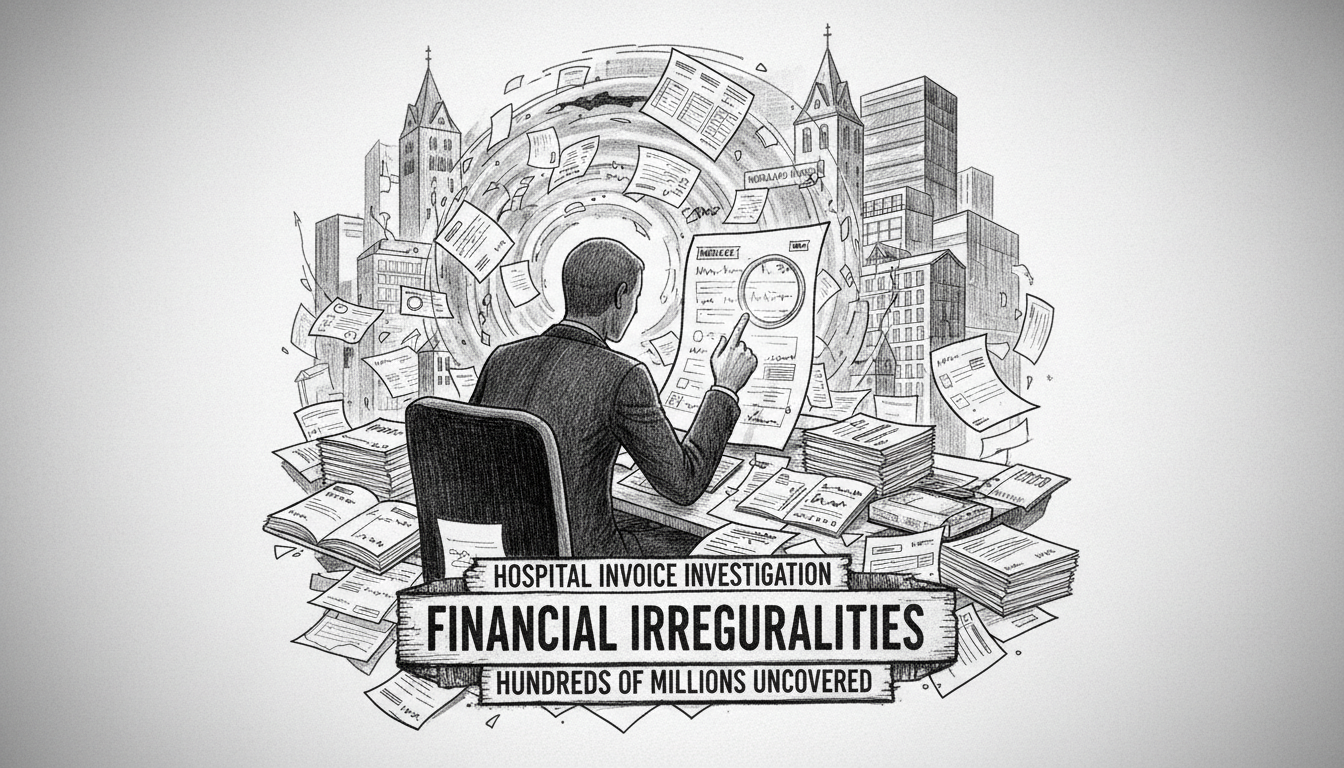A suspicious hospital invoice sparked an investigation that uncovered financial irregularities worth hundreds of millions of kroner. The case began when an employee at Nordland Hospital noticed something unusual on their screen.
In early June, a staff member spotted an invoice from private healthcare provider Spesialistlege AS. The bill totaled over 317,000 kroner. The employee immediately recognized this as problematic.
This amount seemed particularly striking, the employee wrote to a colleague. It should not be possible to conduct such a high number of consultations per patient in one month.
That initial observation triggered a comprehensive review. What started as a single questionable invoice has now expanded into a major financial investigation. The case now involves several hundred million kroner.
Norwegian hospitals frequently work with private specialists to manage patient loads. This collaboration aims to reduce waiting times for medical care. The system depends on accurate billing and proper oversight.
Healthcare fraud represents a serious challenge across Nordic countries. These nations maintain universal healthcare systems funded by taxpayer money. Financial irregularities in this sector directly impact public trust and resource allocation.
The Nordland case highlights ongoing challenges in healthcare financial management. Hospital administrators must balance efficient patient care with rigorous financial controls. This incident shows how vigilant employees can detect problems that automated systems might miss.
Norwegian authorities have strengthened their focus on healthcare financial oversight in recent years. The country's health system undergoes regular audits and transparency reviews. Cases like this demonstrate why such measures remain necessary.
International readers should understand that Nordic healthcare systems differ significantly from insurance-based models. These are publicly funded systems where financial irregularities affect all taxpayers directly. The high standards expected in Scandinavian societies make such cases particularly noteworthy.
What began as one employee questioning a single invoice has revealed much broader issues. The investigation continues to examine billing practices and financial controls. Hospital officials work with regulatory authorities to address the findings.
This case serves as a reminder that financial oversight requires both technological systems and human vigilance. The employee who spotted the initial irregularity demonstrated how individual attention to detail can uncover significant problems.
Norwegian healthcare institutions now face increased pressure to strengthen their financial monitoring. Other hospitals may review their own billing procedures and partner relationships. The outcome of this investigation could influence healthcare financial management across the country.
The substantial sums involved highlight the economic stakes in healthcare administration. Proper financial controls ensure that resources reach patient care rather than disappearing through irregular practices. This case underscores why transparency and accountability matter in public healthcare systems.

